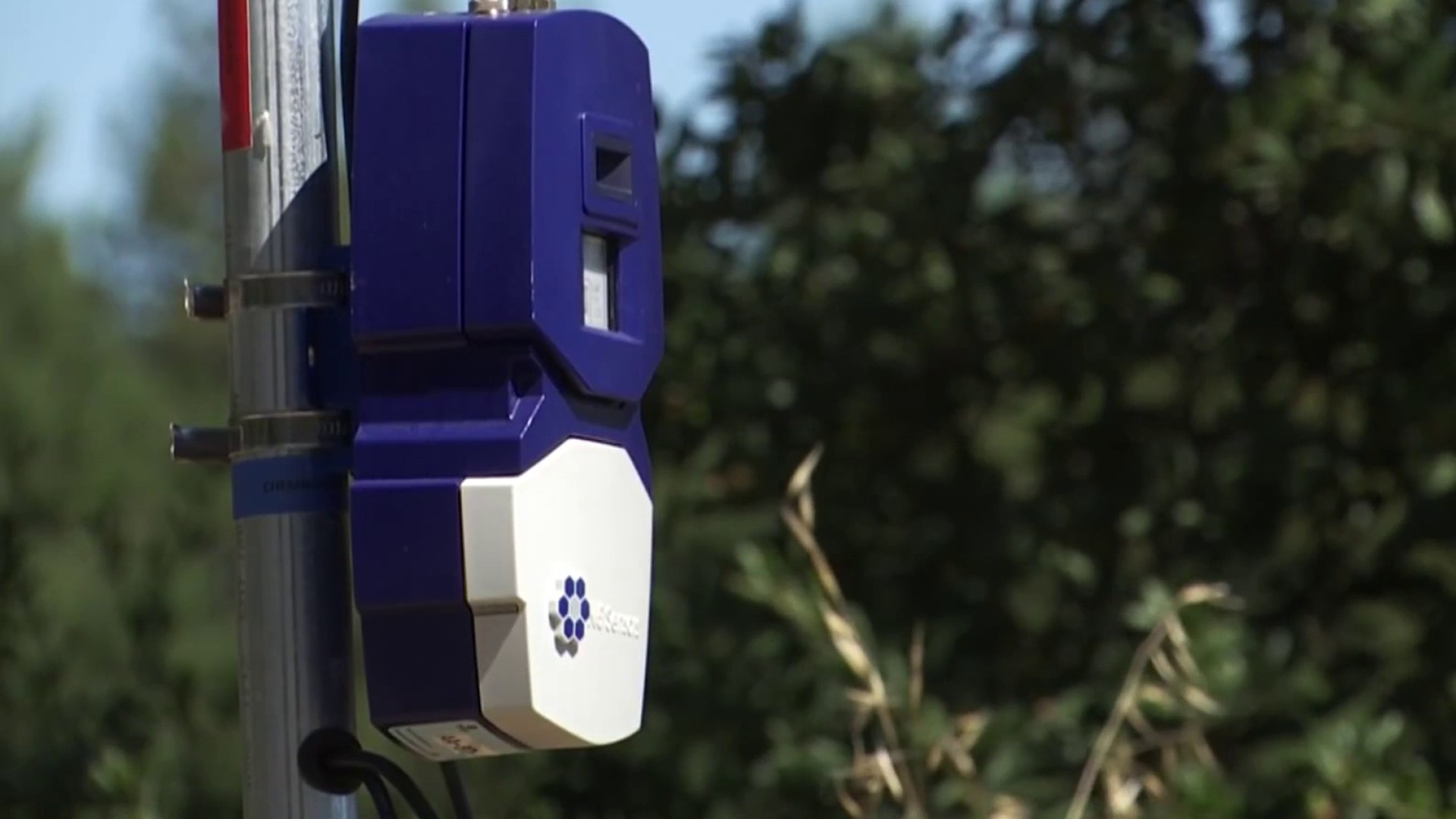As wildfires continue to tear through the California landscape year after year, devastating land and homes, a new study suggests the state’s agriculture is also increasingly a victim.
In a newly published study, researchers at UC Davis uncovered evidence that smoke from mega fires in 2020 and 2021 resulted in a diminished nut harvest in the Central Valley, a harbinger of perhaps greater environmental impact.
The research team, led by post-doc student Jessica Orozco of the UC Davis Department of Plant Sciences, had already been studying how drought and excessive heat impacted pistachio, walnut and almond crops in the valley. As a series of massive fires hit the state, Orozco wondered if the same data could be used to show whether wildfire smoke was affecting the trees.
“In 2020 and 2021, we had the huge mega fires that were unprecedented in California,” Orozco said. “And while we could go and cozy up at home and sort of protect ourselves from the smoke, the trees couldn’t really do that.”

Using data collected from 467 farms across the valley, Orozco’s team analyzed samples from nut orchards and compared them to their yield.
They discovered the smoke impacted the trees in a number of ways. Smoke and ash particles blocked about 20% of the light to the plants. Ozone from the smoke also inhibited photosynthesis.
Teamed up, those factors prevented the trees from storing as many carbohydrates during photosynthesis, which are vital for building up energy during the dormancy period. That led to a smaller crop.
“The declines in yield were between 20 to 60% depending on the farms that were associated with that increasing smoke intensity," said Orozco.
Not only were the yields smaller, but the research team discovered the impacts of the pollution on the trees lasted long after the smoke had cleared away — depressing blooms and impacting the following growing season.
Get a weekly recap of the latest San Francisco Bay Area housing news. >Sign up for NBC Bay Area’s Housing Deconstructed newsletter.
“So when they start to bloom in the spring, there could be less flowers," said UC Davis Professor Maciej Zwieniecki, who was part of the study.
Zwieniecki said there have been ample studies on the impacts of second-hand smoke on humans but very little discussion about its impact on agriculture. The rise in mega fires and the new discovery of their threat to trees adds yet another entry to the long list of climate change impacts.
“Climate change produces a lot of problems,” Zwieniecki said. “Instead of solving them, it’s, 'Oh, there is another problem we have to learn about.’”
The researchers speculate that the impact of smoke on nut trees also suggests an impact to forests and other agricultural crops such as vineyards, which bear their fruit during the months that coincide with fire season.
In the state’s bread basket, the new research could help predict future threats to California’s prized agriculture.
“Especially if we interlink the study with the changes in temperature and changes in water availability, we can try to predict if California is a sustainable place for growing orchards," Zwieniecki said.



